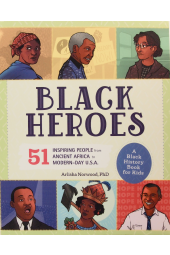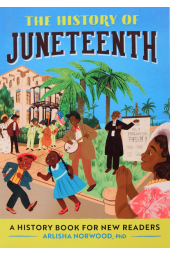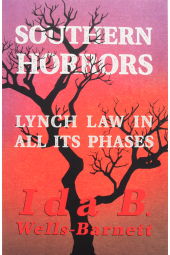Faith for Living | "Parables of the Bible" [eBook]
Quick Overview
A parable can be defined as a short fictitious story that illustrates a moral attitude or a religious principle. They employed brief word-pictures that were effectively used to convey concepts and principles the hearers were urged to adopt and practice. While Jesus used parables to connect with His audience emotionally, and by relating common events most would recognize, His parables achieved a greater purpose. They separated those who were committed to God from those who weren’t.
Available on these platforms:
![]()
![]()
![]()
A parable can be defined as a short fictitious story that illustrates a moral attitude or a religious principle. They employed brief word-pictures that were effectively used to convey concepts and principles the hearers were urged to adopt and practice. While Jesus used parables to connect with His audience emotionally, and by relating common events most would recognize, His parables achieved a greater purpose. They separated those who were committed to God from those who weren’t.
…The parables are meant to divide the crowd. While this may seem as if Jesus denied some people access, the difference He means is not in the message—but in the response….His miracles had attracted many, and others had perhaps been astonished by His earlier teaching. But the parables themselves, just as in the story of the seed falling on various places (Matthew 13:3-9), revealed the true nature of their responses and their real decisions. Those committed to the Kingdom of God would seek and find further understanding. But those uncommitted—perhaps listening only because of the initial excitement—would reject the teaching as unintelligible. Alfred Edersheim, The Life and Times of Jesus the Messiah (Book III, Chapter XXIII).
Though the parables reflected events commonly known during that period of time, the truths they reflect are timeless and just as relevant today. For example, the “Parable of the Ten Virgins” warns us to be ready for the return of our Savior. However, who among us hasn’t attended a wedding or wedding related function that didn’t start on time because someone wasn’t prepared? Or who among us isn’t in some way acquainted with someone like the “Unjust Servant” – a person who pleads for mercy and forgiveness for their shortcomings, yet is unwilling to extend the same to others?
The biblical parables today achieve the same desired effect as thousands of years ago: to separate those who are committed to seeking the kingdom of God from those who aren’t.
| Primary Category | eBooks |
|---|---|
| Author | Kimberly Freeman |
| Format | eBook/PDF |
| Language | English |
| Publisher | Church Of God In Christ Publishing House |
| Publisher's Price | $2.25 |
| Pages | 45 |
| Publication Date | Jan 31, 2013 |
A parable can be defined as a short fictitious story that illustrates a moral attitude or a religious principle. They employed brief word-pictures that were effectively used to convey concepts and principles the hearers were urged to adopt and practice. While Jesus used parables to connect with His audience emotionally, and by relating common events most would recognize, His parables achieved a greater purpose. They separated those who were committed to God from those who weren’t.
…The parables are meant to divide the crowd. While this may seem as if Jesus denied some people access, the difference He means is not in the message—but in the response….His miracles had attracted many, and others had perhaps been astonished by His earlier teaching. But the parables themselves, just as in the story of the seed falling on various places (Matthew 13:3-9), revealed the true nature of their responses and their real decisions. Those committed to the Kingdom of God would seek and find further understanding. But those uncommitted—perhaps listening only because of the initial excitement—would reject the teaching as unintelligible. Alfred Edersheim, The Life and Times of Jesus the Messiah (Book III, Chapter XXIII).
Though the parables reflected events commonly known during that period of time, the truths they reflect are timeless and just as relevant today. For example, the “Parable of the Ten Virgins” warns us to be ready for the return of our Savior. However, who among us hasn’t attended a wedding or wedding related function that didn’t start on time because someone wasn’t prepared? Or who among us isn’t in some way acquainted with someone like the “Unjust Servant” – a person who pleads for mercy and forgiveness for their shortcomings, yet is unwilling to extend the same to others?
The biblical parables today achieve the same desired effect as thousands of years ago: to separate those who are committed to seeking the kingdom of God from those who aren’t.
| Primary Category | eBooks |
|---|---|
| Author | Kimberly Freeman |
| Format | eBook/PDF |
| Language | English |
| Publisher | Church Of God In Christ Publishing House |
| Publisher's Price | $2.25 |
| Pages | 45 |
| Publication Date | Jan 31, 2013 |



![Faith for Living | "The Seven Things God Hates" [eBook]](https://www.cogicpublishinghouse.net/media/catalog/product/cache/2eaddfd0be171511b8beb7c8a6c1c63e/f/f/ffl_summer_2013_cover_web__2_3.jpg)

![Faith for Living | "Finish" [eBook]](https://www.cogicpublishinghouse.net/media/catalog/product/cache/2eaddfd0be171511b8beb7c8a6c1c63e/f/f/ffl_cover_spring_2015_1.jpg)
![Faith for Living | "The Building Blocks of Faith" [eBook]](https://www.cogicpublishinghouse.net/media/catalog/product/cache/2eaddfd0be171511b8beb7c8a6c1c63e/f/f/ffl_cover_summer_2015_1.jpg)
![Faith for Living | "Set Apart For God's Use" [eBook]](https://www.cogicpublishinghouse.net/media/catalog/product/cache/2eaddfd0be171511b8beb7c8a6c1c63e/g/e/generic_covers_fall_2015_page_4_1_1.jpg)













